

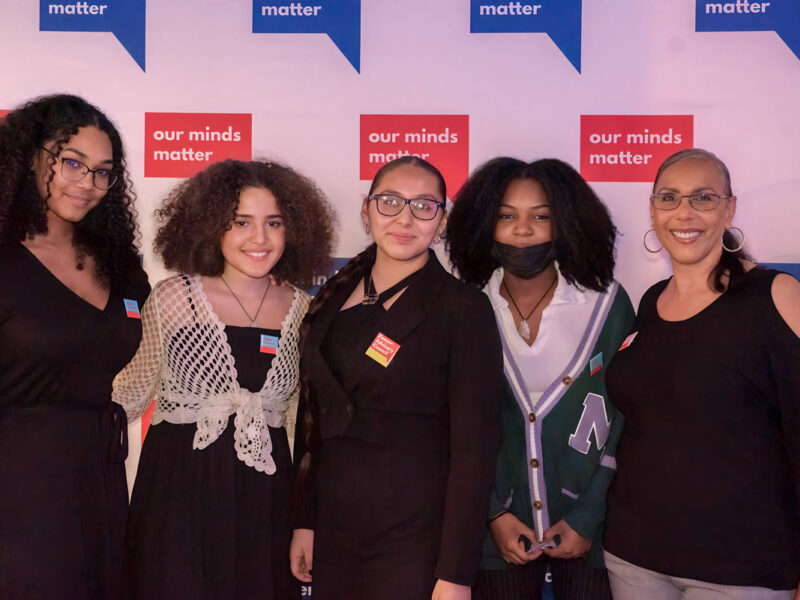
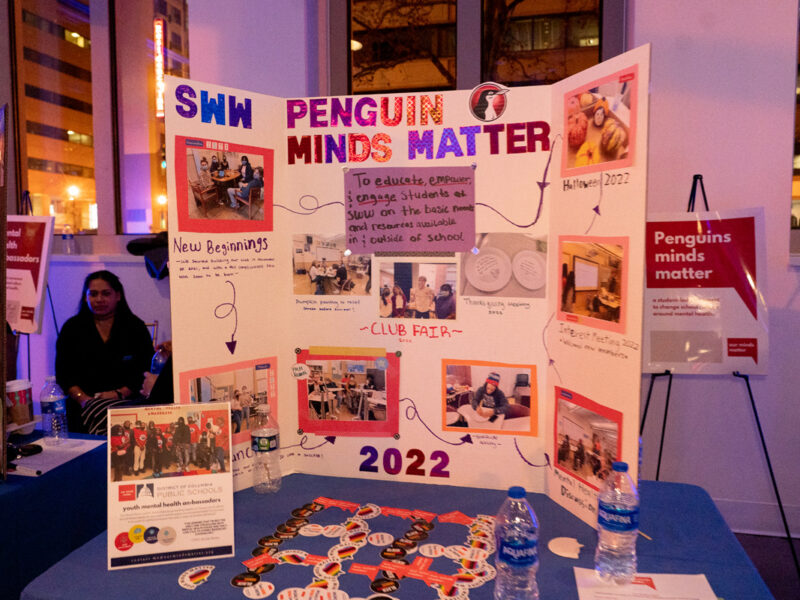

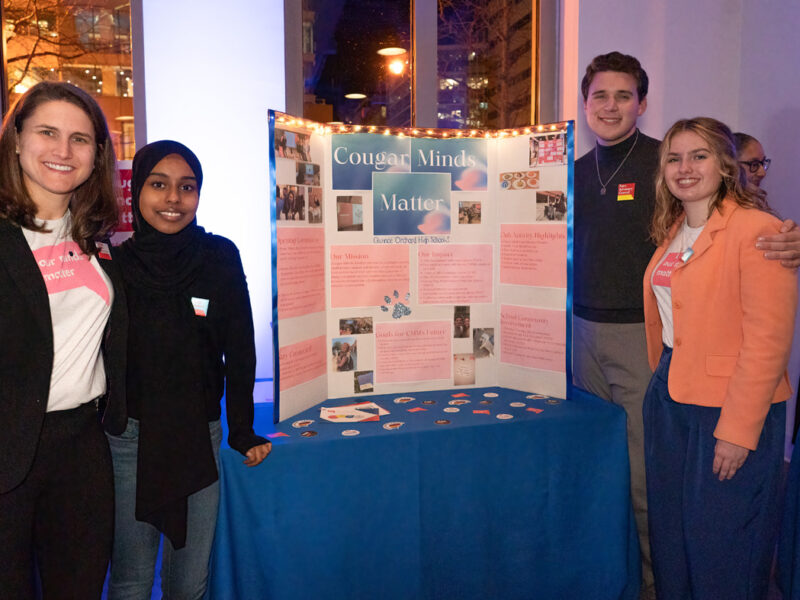

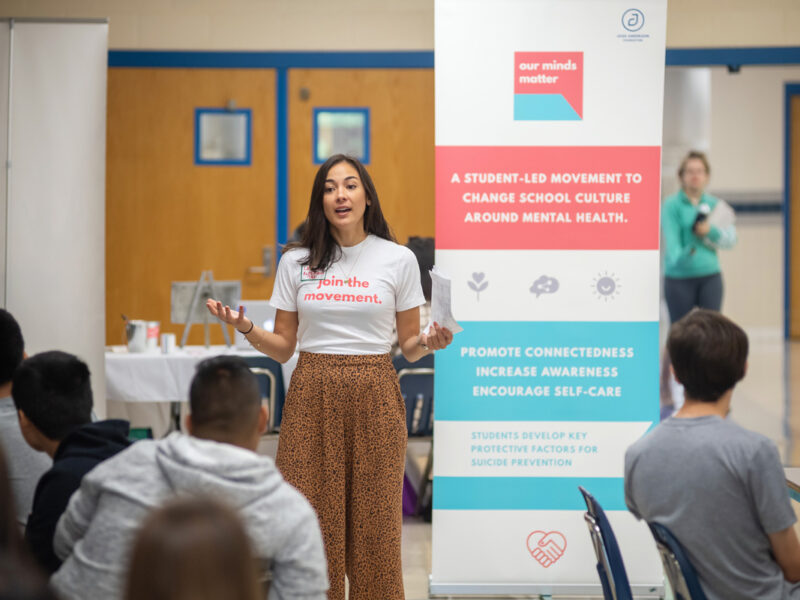
Data-Driven & Evidence-Informed
At Our Minds Matter, we are dedicated to grounding our work in data and evidence. Our evaluation process is a cycle of continuous improvement that allows for reliable data collection, robust analyses, and responsive programming. Each data point represents a teenager, a community, and a life; thus, we consider holistic measurement and evaluation not only essential but also an ethical responsibility.
Through our ongoing research into our initiatives, we ensure that our programming incorporates best practices in teen suicide prevention and delivers impactful results for the communities we serve.
"I have enjoyed so many of the activities and it really has pushed me to open up and voice my opinion."
— OMM Club Member
“OMM has brought me out of a dark place and has brought me joy knowing that i’m not alone and that there are brighter days ahead.”
— OMM Club Member
"I have learned about so many self care tips and mental health resources, and I feel more connected to my peers."
— OMM Club Member
“Through meaningful conversations, shared experiences, and supportive connections, OMM has provided a safe space where my mental health is not just acknowledged, but prioritized."
— OMM Club Member
"I’ve learned about coping skills, how to engage meaningful with current peers, and know that I can utilize my community to contribute to my, and others’ mental health.”
— OMM Club Member
Data is the heartbeat of our work
Reminding us that behind every number is a life we can help change
Program Evaluation
Each year, we conduct an in-house program evaluation to deepen our understanding of the impact of the OMM model.
Throughout the year, we collect survey data from teens, student leaders, and club sponsors (school staff) involved with OMM programming to help us evaluate the extent to which OMM meets its objectives, as well as for internal data-informed decision-making.
Among OMM club members, we found consistent evidence across years that…
Increases in program outcomes (i.e. protective factors) are associated with increases in participants’ subjective well-being
Increased involvement with OMM (i.e. time with OMM, attendance/dosage) is associated with higher well-being scores and perceived positive impact on mental health scores
For a subset of paired sample, we see improvements in all outcome measures from the beginning of the year to the end of the year, and the gains in their mental wellbeing were statistically significant
Student leaders reported significantly better outcomes than club members on social connectedness, positive coping and healthy habits, likelihood to help others, and positive impact on mental health
Highlights from the 2023-2024 survey findings:
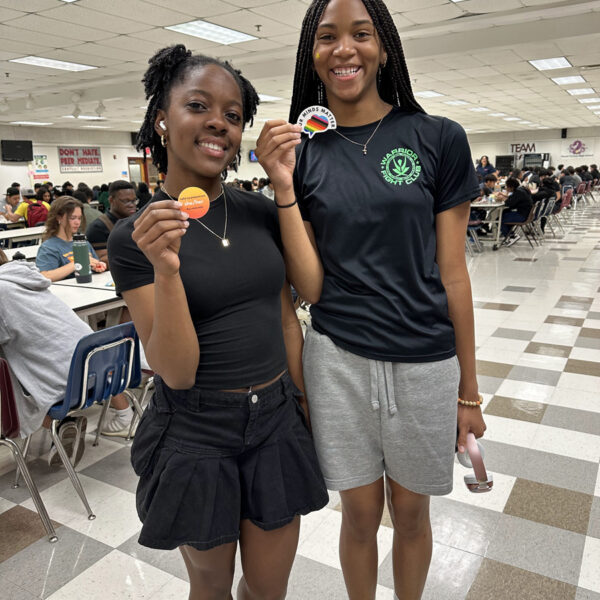 85%
85%Roughly 85% of students in both middle and high school who participated in an OMM club reported that they felt confident in supporting someone who was struggling
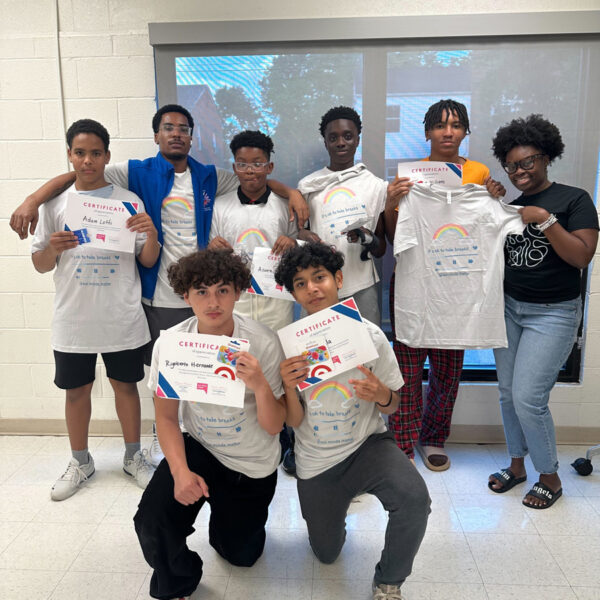 80%+
80%+Over 80% of all surveyed students “agreed” or “strongly agreed” that participating in OMM has had a positive impact on their mental health, and this percentage increased to 88% for those who attended 4 or more meetings
 ~78%
~78%Around 78% of high schoolers and middle schoolers indicate that they feel socially connected to their fellow OMM club members; this percentage was higher for those who attended 4 or more meetings (82%)
Unpaired pre/post comparisons for high school participants
When comparing overall survey findings from those at the beginning of the year to those at the end of the year (unpaired sample), we see that high schoolers saw improvements in all of the outcome measures from pre- (Fall) to post- (Spring), with the gains in their feelings of social connectedness, self-care habits, and subjective well-being being statistically significant.
They also reported a decrease in perceived mental health stigma at their school from beginning to the end of the year though this decrease is not significant.
Scores for middle school respondents were largely trending in the right direction; however, fewer middle schoolers took the survey compared to high school students hence it is harder to detect significant differences due to small sample size.
Want to learn more about our findings? Access the entire 2023-2024 End-of-Year Program Evaluation Results below.
—— OMM club member“Our OMM club has impacted our school’s mental health culture by effectively implementing discussions and actions throughout the school that have the goal of destigmatizing mental health issues in the community.”
Research Partnerships
We aim to establish OMM as a certified, best-practice, and evidence-based program. To this end, we are invested in developing productive partnerships with external researchers to yield independent research outputs and contribute insights to the broader scientific community.

Jordan A. Booker, Ph.D.
Associate Professor of the Department of Psychological Sciences, University of Missouri
Since 2021, we have partnered with Dr. Jordan Booker from the University of Missouri to research peer-to-peer models in youth suicide prevention programming.
Dr. Booker received his Ph.D. in Developmental Psychology at Virginia Tech and completed postdoctoral training at Emory University.
His research spans topics of emotion, personality, and identity development across adolescence and into early adulthood. He often incorporates autobiographical and family storytelling methodologies to address how people manage emotions, express personality, and build an integrated identity.
Current Project
Researching the “ripple effects” on peers and the broader school culture
Built on early evidence suggesting that OMM programming provides valuable social resources and promotes mental health outlook for participating students, our current investigation adopts a quasi-experimental design to test evidence that OMM involvement is (1) directly beneficial to student mental health for club members and (2) indirectly contributes to mental health for peers at schools with OMM clubs (i.e. the cascading effect of peer influence).
More importantly, we are interested in exploring how the presence of OMM clubs may be generative for the broader school climate as compared to schools without an OMM club.
Featured Research

Research Collaborations
Interested in collaborating with Our Minds Matter on your research? We support research efforts that might contribute solutions to the field of youth mental health and suicide prevention.
to be a research partner, you must meet the following requirements:
- Be affiliated with an academic or research institution. This includes obtaining the approval of an Institutional Review Board (IRB) and having a Principal Investigator who is a full-time employee of the institution.
- Knowledgeable in youth development, mental health, and suicide prevention theories and literature.
- Have the technical expertise to work with qualitative and quantitative data.
- Must have a current and completed CITI human subjects research certification.
- Experience working with school districts is preferable but not required.
Please reach out to our Director of Impact if you are interested in collaborating with us.
Previous Reports
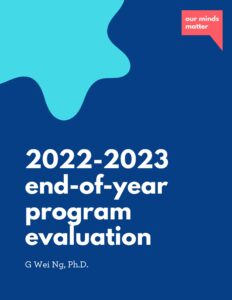
2022-2023 end-of-year program evaluation results
G Wei Ng, Ph.D.
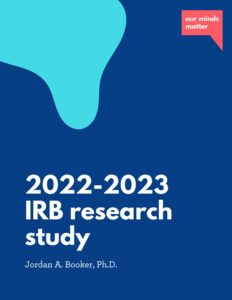
2022-2023 IRB Research Study
G Wei Ng, Ph.D.
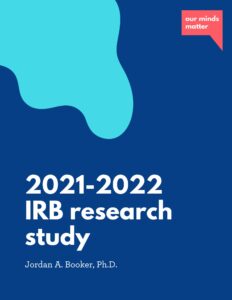
2021-2022 IRB Research Study
Jordan A. Booker, Ph.D.
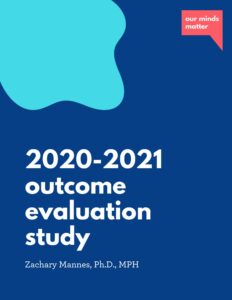
2020-2021 Outcome Evaluation Study
Zachary Mannes, Ph.D., MPH
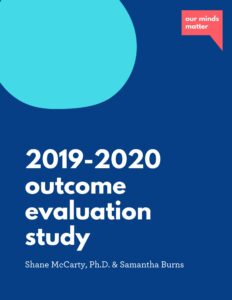
2019-2020 Outcome Evaluation Study
Shane McCarty, Ph.D. & Samantha Burns
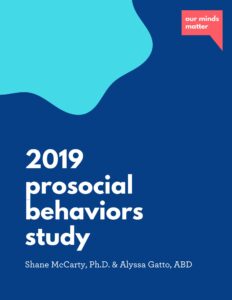
2019 Prosocial Behaviors Study
Shane McCarty, Ph.D. & Alyssa Gatto, ABD
Acknowledgements
data & research support:
- FCPS Office of Research & Strategic Improvement
- DCPS Office of Data Systems & Strategy
- MCPS Office of Strategic Initiatives, Applied Research & Evaluation Unit
technical support & contributor:
- Sativa Thompson
Contact Us
Please email our Director of Impact with any questions regarding OMM program evaluation or research.
